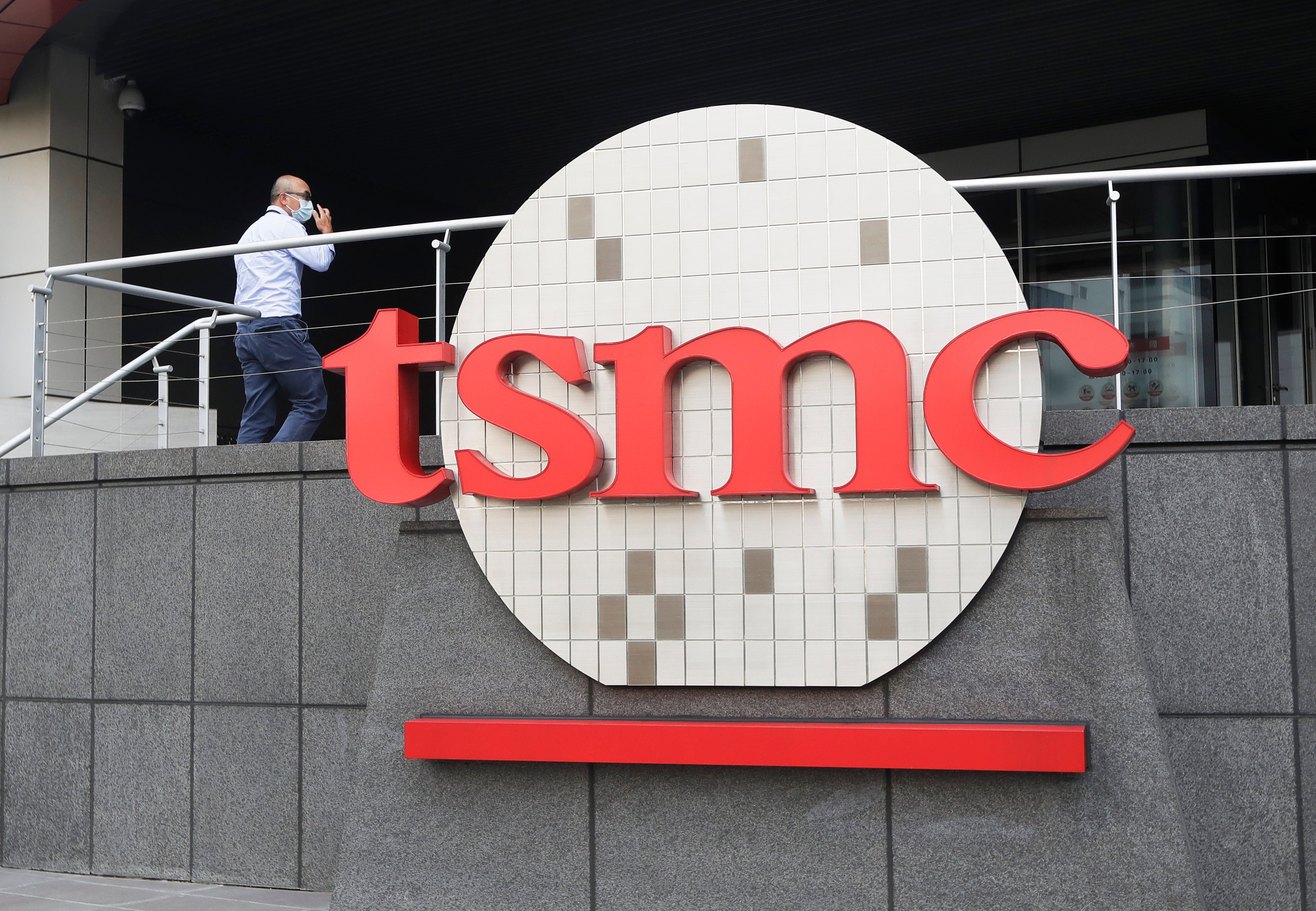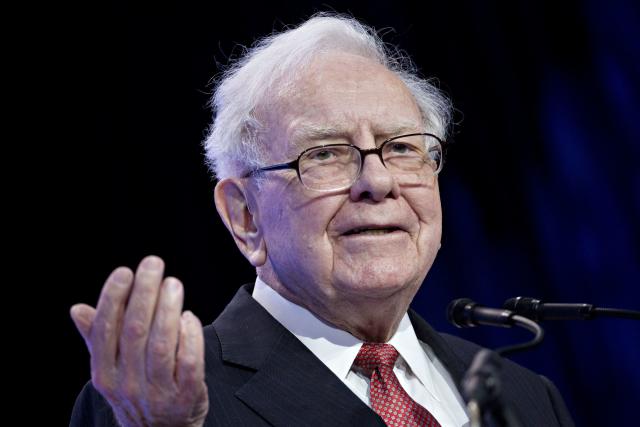Berkshire, owned by Warren Buffett, acquires a $5 billion investment in TSMC

Berkshire Hathaway Inc. may suggest investors seeking a dip-buy opportunity in the worldwide semiconductor industry: manufacturer of semiconductors in Taiwan In the most recent quarter, the company saw a $5 billion investment from Warren Buffett’s conglomerate, at which time the stock had lost almost $250 billion. Market analysts credit the purchase to TSMC’s low valuations, technological leadership, and strong fundamentals, even though the company hasn’t officially commented on the sale.
After a volatile era highlighted by decreasing demand and US-China tensions, Berkshire’s purchase, combined with a similar action by Tiger Global Management LLC, may indicate that value is beginning to emerge in the semiconductor business. Wall Street banks have increased their optimistic predictions for TSMC, with Morgan Stanley analysts stating that the company has hit “a favorable entry opportunity.
If you can see past the present semiconductor downcycle, TSMC is a solid value option in the long run, according to Andy Wong, fund manager at LW Asset Management. With the growing need for IoT, renewable energy, and vehicles, “Buffett might be investing in the next-decade boom.
Since Berkshire’s acquisition was made public last week, TSMC’s shares in Taiwan have increased by roughly 10%. According to a Nov. 8 report from Morgan Stanley, they are currently selling at a 30% to 40% discount on their downcycle valuation because of geopolitical risks.
According to data gathered by Bloomberg, the stock has a value multiple of around 12.6 times based on its anticipated profits for the upcoming year. That is thought to be the lower end of the 10-year average by Goldman Sachs Group Inc. The firm is more affordable than the majority of the companies in the largest US-listed semiconductor index, the Philadelphia Stock Exchange Semiconductor Index.
Given its strong execution, Goldman analysts predicted that TSMC will continue to demonstrate its resilience in comparison to its competitors during the industry downturn in a note published on November 16. The business is best positioned to take advantage of the industry’s long-term structural growth in 5G, artificial intelligence, high-performance computing, and electric cars, they said, and valuations are favorable.
Despite the industry slump, TSMC was nevertheless able to produce double-digit revenue growth and a gross margin well above 50% this year. It has helped the company beat peers like Micron Technology Inc. and SK Hynix Inc. by capping its year-to-date loss at 21%. According to experts, the Taiwanese company’s track record of strong cash flow and consistent payouts may have also contributed to Buffett’s interest.
According to Phelix Lee, an equities analyst at Morningstar Asia Ltd., “TSMC (and other foundries) all have to incur high capital expenditure in the quest for tech/capacity supremacy, but history shows TSMC has managed to create decent cash flows despite expenditures. Since the 2000s, the corporation has a history of paying dividends, he continued. According to statistics gathered by Bloomberg, the stock’s most recent dividend yield is 2.6%, which is greater than Micron’s 0.8% and nearly equal to SK Hynix’s.
Although Buffett’s wager has improved retail sentiment toward the stock, geopolitical risks and changes in the chip industry’s inventory could cause short-term swings in the shares. As the US and China compete for dominance in the global technology economy, the semiconductor industry is at the core of a widening split between the two countries. To prevent high-end processors from falling into the hands of the Chinese military, Washington has increased restrictions on products made for Chinese consumers.
Since February, analysts have decreased their average target price for TSMC’s stock by about 30% to reflect the risks. In line with the decline recorded by the benchmark for global semiconductors, its shares listed in the US are down more than 30% this year. According to Jason Su, fund manager of Cathay Taiwan 5G Plus Communications ETF, “Investors are concerned by higher-than-usual inventories, which shows no indications of relaxing yet. He said that when inventory corrections are finished, semiconductor supplies are expected to rise once again. “Companies like TSMC stated previously they expect inventory correction to continue through first half next year.
Taiwan Semiconductor Company News
According to a recent filing, Berkshire bought approximately 60 million shares of TSM stock in the three months ending in September. Taiwan Semi, also known as TSMC, is widely regarded as the most important company in the world because it is the world’s leading advanced chip foundry. Even Samsung’s foundry business cannot compete with TSMC’s 3 and sub-3 nanometer chips.
However, because the firm is headquartered in Taiwan and so faces the potential of being invaded by the People’s Republic of China, it frequently trades at P/E ratios below 15. After winning the country’s civil war on the mainland in 1949, the latter has long wanted to reclaim Taiwan. China has openly attacked Taiwanese sovereignty in recent years, launching missiles over the island and sailing warships into its seas.
US investors have been wary of betting on TSMC because the company would lose all of its Western contracts if China took over the island. Taiwan Semi is used for advanced chip production by Apple (AAPL), Nvidia (NVDA), and Advanced Micro Devices (AMD). TSMC has already begun construction of a $12 billion foundry in Arizona, and the business operates a foundry in Washington state. Once completed, the new foundry in Arizona is projected to lessen the strategic firm’s geopolitical risk.
TSM stock has gained around $9 in the premarket. The stock had already seen its 9-day moving average cross above its 21-day moving average on Thursday, November 10, indicating that it was primed for another run. The bulls are now focusing on the August 15 high of $92. With Buffet’s endorsement, it appears that both growth and value investors will flock to this move, easily reaching that price level in the coming days.
The near-term bottom at $60 is most likely the year’s low, and many traders are likely viewing this chart and rebounding as the conclusion of the decline. Year to date, the stock is down more than 43%. The Relative Strength Index (RSI) has already reached oversold territory, suggesting that TSM stock may need to move sideways for a while before making its move to $92.





